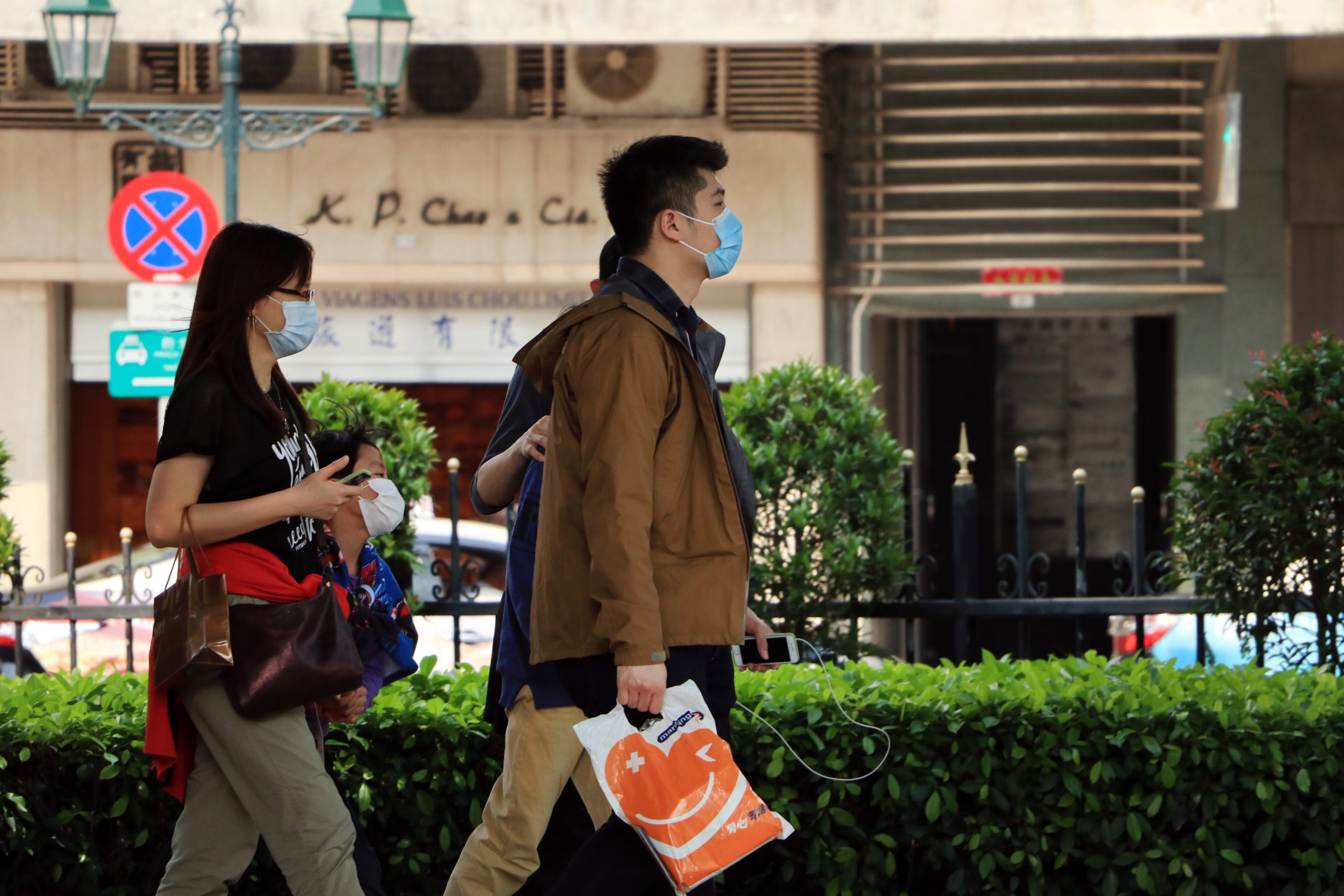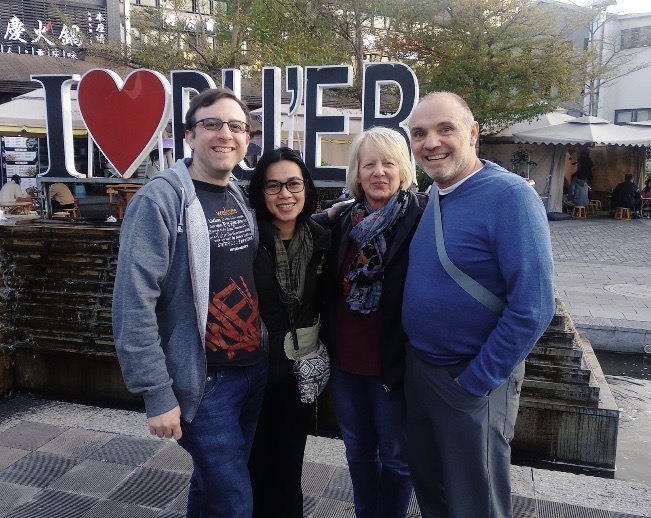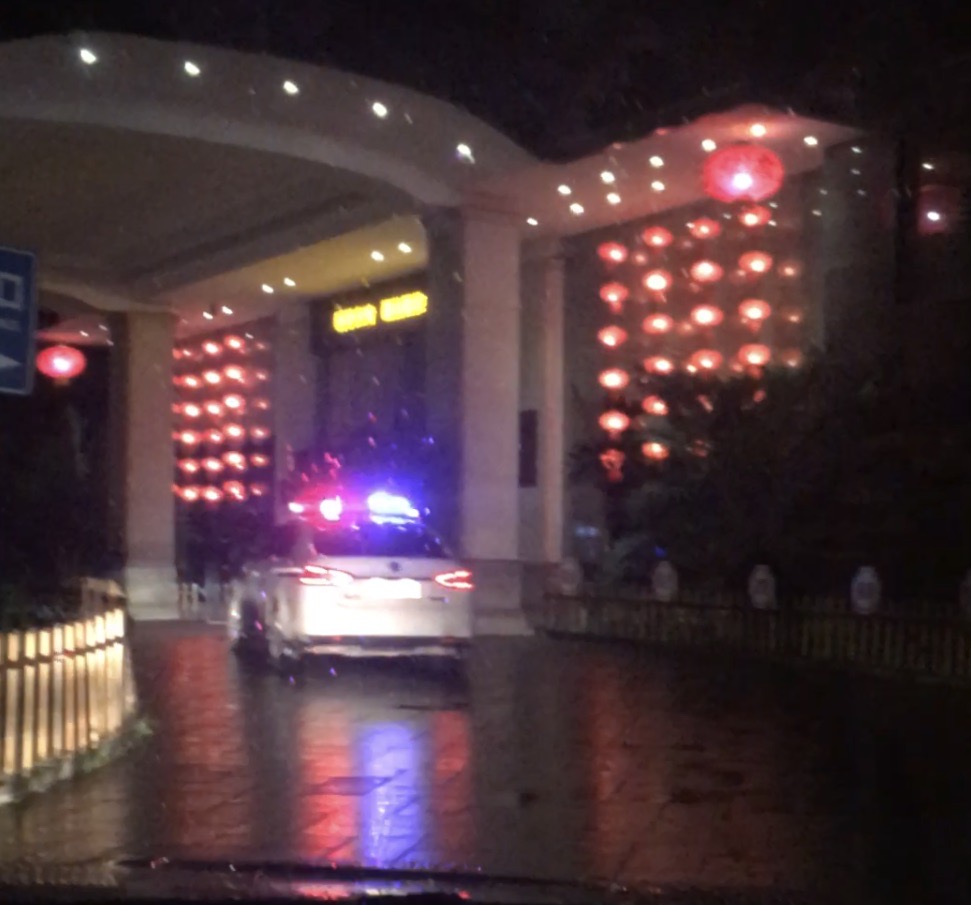
About the author : paulwesslundwriter
Paul Wesslund spent a career writing and editing for newspapers and in the energy industry. When he retired in 2015 he went on to write two books on how kindness and integrity leads to success, wrote a monthly energy column, became an environmental organizer, and got involved in the leadership of his church.
Subscribe To My Blog
Share This Story, Choose Your Platform!
The couple I write about in my new book, Small Business, Big Heart, happened to visit China in January, just as the coronavirus started breaking out there. After they got back home to Louisville I talked to them about their scramble to get back to the United States, the differences they saw in how the two countries responded to an impending pandemic, and the similarities of the reactions from everyday people on both sides of the ocean. What they experienced last winter seems relevant today as America tries to figure out how to move forward through COVID-19.
Six months ago I texted a friend who was vacationing in China. As I read about the spread of a mysterious new virus I had not yet even learned to pronounce, I worried about him and his wife.
“Hope you’re OK over there,” I messaged.
The world has changed so much since January that today, a greeting of, “Hope you’re OK over there,” could just as well be a message we’d send to a neighbor.
Sal and Cindy Rubino were headed to a traditional tea ceremony when they first heard of nearby cities and tourist sites shutting down. During the next few days, as they left China to return to the United States, they lived through two radically different ways that a government and a society can react to a crisis. They also saw similarities, as people in both countries navigated their own everyday ways through the pandemic.
Back on January 20, the US had reported its first case of COVID-19. But by the time I texted my friend on February 1, China seemed the bigger medical story. It was quarantining whole cities and delaying celebrations of the Chinese New Year.
“We are fine,” Sal replied to my text. “We had a good time, but the coronavirus disrupted some of the activities we had planned.”
That turned out to be a wild understatement.
I’ve gotten to know Sal and Cindy pretty well over the past three years, working with them on a book about their career in the restaurant industry and how they fought to run a business that was both compassionate and profitable. They retired last year after 23 years of owning and operating The Café, a hugely successful breakfast and lunch restaurant near downtown Louisville, Kentucky. High on their retirement bucket list was a visit to see their son Clark and his wife, Michelle, who live in Chongqing in southwest China. Sal and Cindy flew to China January 11 for a visit that started with a sightseeing itinerary and ended with a scary scramble to find a flight back home.
Coping with the Beginning of a Pandemic
I wanted to meet and talk with them about touring through a country going through the beginnings of a pandemic. First, however, we had to wait two weeks while they followed the 14-day self-quarantine guidelines found in a brochure from the Centers for Disease Control and Prevention. The brochure was handed to them in San Francisco, their first stop back in the United States.

When we finally met in our regular Louisville coffee shop, they were still wide-eyed with amazement at the contrast in how the two countries, with their vastly different governments and cultures, were responding to the threat of a new virus—from the sudden and spooky silence of otherwise busy Chinese city streets to the patchwork of reactions in this country that ranged from compliance to defiance.
The culture shock hit almost as soon as they got back home. One of Sal and Cindy’s first encounters after arriving back in Louisville came during their two-week self-quarantine. They needed food, so Cindy headed to the store, intending to keep her social distance and first putting on a protective mask—standard practice in the country she had just come from. But not in Louisville. Not in February. Cindy says, “A woman looked over at me and said, ‘Oh, God, I’m just going to go home and hide.’”
Cindy learned a lesson from that encounter. A few weeks later, long after the self-quarantine period, Cindy was back at the store, this time in the soaps and disinfectants aisle. A woman started a conversation about washing hands and cleaning around the house. She peered at Cindy and said, “Do you know they’re monitoring 100 people in this state who were in China?”
That’s me, Cindy said to herself. “I beelined it past her. I thought, ‘I can’t give this woman any more information because she will absolutely freak out if she knows that I’m one of those 100.’”
Passport and visa records would track Sal and Cindy’s travels, but they say the monitoring didn’t involve surveillance of them. Instead, in addition to the self-quarantine, they were just told to contact the local health department if they showed coronavirus symptoms. That was a much more casual approach than what they’d experienced in China, where they felt much more closely monitored.
The seriousness of the outbreak in China had started to sink in while Sal and Cindy traveled with Clark and Michelle through the extreme southern part of the country. They were headed to Yunnan province, which juts into an area surrounded on three sides by Burma, Laos, and Vietnam.
January 25 was the Chinese New Year. And Clark’s birthday. Clark wanted to celebrate by showing his parents the customs and lush beauty of the mountainous tea-producing forests of China. A couple days earlier, Michelle had read from her phone news about a virus in Wuhan, but that seemed a faraway and urban issue. The outbreak came home to them soon enough as they tried to visit a primeval forest on one of their stops. Sal and Cindy sat in the rental car for an hour while Clark tried and failed to persuade the gatekeepers at Pu’er National Park to let them in. The best he could do was to accept an escort to a hotel that was still open.
In the morning they sat in a room in the hotel for a traditional Pu’er tea ceremony. It’s a ritual of precise, deliberate steps, carefully warming water, pots, and cups. The server is sometimes called the performer. For the four visitors that day she poured hot water over small cakes of tea that had been pan-fried, then sun-dried, then crumbled into a strainer. The tea steeped multiple times, in what Sal and Cindy describe as an elegant, artistic kind of dance, making a cup that you don’t drink like coffee, but sniff and sip like a Kentucky bourbon.
Clark asked the server if she wasn’t worried that they might be bringing the virus to her family.
“Clark translated for us,” says Cindy. “She said, ‘What can I do? I can’t shut down everything. Right now I’m going to take care of my guests and be hospitable.’”
After a few more days of touring the region, the four travelers set out for the 15-hour drive north to Chongquin through what seemed like a different landscape than just days earlier. “We felt like we were in a war zone,” says Sal. “Everywhere there were police checkpoints.”
When they pulled off the freeway they were stopped by a cadre of police and health care workers wearing hazmat suits who took their temperatures and interrogated them about where they’d been and where they were going. At their first planned stop, all the hotels were closed.
They drove on.

Clark was the only licensed driver, and he pleaded at each stop, saying he was getting tired. They were told, “Maybe you could sleep in the car.” Finally, a police chief showed sympathy for the stranded Americans. It was 2:00 a.m. before they found accommodations, and a police escort took them there. In the morning they were blocked from the restaurant. Instead, staff in hazmat suits brought a breakfast to the room—a hard-boiled egg, slices of white bread, an Asian pear, and instant coffee.
“We didn’t eat any of it,” says Cindy. “We just got dressed and left. Our appetite was done.”
We never thought the virus would come to the U.S
All morning, vans drove down the middle of deserted streets, blaring instructions in Mandarin from bullhorns mounted on top. Information was scarce. Clark and Michelle supplemented the basic government announcements and officially-regulated internet with their own networking sources. Cindy says, “We had little information because they don’t have other ways to inform you. It’s basically a mandate from the government and that’s all you’re getting.”
Once the four travelers were back home in Chongqing they considered ways to get Clark and Michelle to the United States, where they figured they’d be safe from the virus—a plan that in retrospect seems kind of quaint. “We never thought it would come to the U.S.,” says Cindy.
They finally decided it made more sense for Clark and Michelle to stay in China. While trying to figure out other next steps, they made a nerve-racking trip to one of the few grocery stores still open.
“We were scared because it was the first crowd we had been in since we got back to Chongqing,” says Cindy. “There wasn’t a person there who wasn’t wearing a mask. It was almost a panic mode, like it was here in the United States when people started realizing they weren’t going to have access to stuff.”
Their attention then turned to getting Sal and Cindy home after their flight was canceled.
“Flights were filling up quickly because people were wanting out while they could still get out,” says Cindy. “We knew we had to hightail it out of there.”
A flight from a smaller airport than what they were originally booked on took them to Hong Kong for a 12-hour flight filled with anxious people wondering whether they were spreading, or catching, the coronavirus.
“We were so happy to get out of China and back home,” says Cindy. “We were OK, Clark and Michelle were OK, then all this blows up in the United States.”
Sal and Cindy returned from China with doubts about America’s ability to take strong enough steps to stop the spread of the coronavirus.
“In China they’re pretty used to following mandates and protocols,” says Cindy. “When I came back into the U.S. I wondered, how is the U.S. ever going to do what China did? How are they ever going to put a lockdown on the U.S.? People here are going to do whatever we want. That’s a difference that started to worry me when the coronavirus started to come here.”
That’s what Cindy said to me in March. Her worry about our free-spirited nature now seems prophetic as mask wearing and social gatherings have become arguing points, dividing government leaders and even disrupting family dinners.
Chinese traditions and southern hospitality
At the same time, we’ve also rallied, celebrating lives lost to the virus—newspapers report that obituaries have gotten longer and more detailed. In my neighborhood, walkers cross to the other side of the street to stay socially distanced. At their feet, they pass by encouraging words from chalk art on the sidewalk and brightly painted rocks at the base of trees: choose happy; you got this; laugh a lot; we will either find a way, or make one.

Shoppers no longer exclaim in shock when they see someone wearing a mask in a grocery store—they’re likely to be wearing one themselves. Businesses now populate their TV ad time with explanations of how they’ll provide things like food, insurance services, and car repairs in ways that minimize spreading the virus. Assembly lines that used to produce other things adjusted to producing supplies like face coverings, protective gowns, and disinfectant. Even Girl Scout cookies went online—my three boxes ordered by e-mail magically appeared on the front steps.
Sal and Cindy found that those personal experiences cross countries and cultures—from the ancient hospitality of pouring tea for a guest in southern China, to the Kentucky southern hospitality of bourbon distillers who retooled their production lines to make hand sanitizer.
We’re figuring it out, working our way through each day of uncharted health and financial territory. All over the world we’re turning to each other and saying, “Hope you’re OK over there.”
